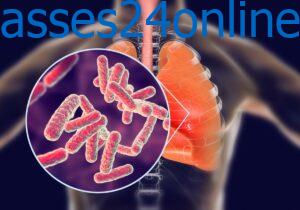Down syndrome symptoms, causes and treatment in detail

Down syndrome symptoms, causes and treatment in detail
Down syndrome symptoms, causes and treatment in detail ; Down Syndrome or Trisomy 21: It is a chromosomal abnormality that results from the presence of an extra chromosome number 21, which leads to mental disabilities and physical deformities.
It is caused by an extra copy of chromosome 21.
Children with Down syndrome are often small, have a delay in physical and mental development and have a face with special features.
Before birth, Down’s syndrome can be suspected on ultrasound or on a maternal blood test and confirmed by chorionic villus sampling and/or amniocentesis.
At birth, diagnosis is based on the baby’s physical appearance and is confirmed by detection of an extra copy of chromosome 21 in a blood sample.
Most children with Down syndrome survive to adulthood.
Symptoms, causes and treatment of Down syndrome in detail: physiological pathology and basic information
Chromosomes are structures in cells that contain DNA and many genes.
A gene is a piece of deoxyribonucleic acid (DNA) that contains the code to make a specific protein.
Genes contain instructions that determine how the body works.
The presence of an extra chromosome is called trisomy; The most common trisomy in newborns is trisomy 21 (three copies of chromosome 21, the smallest human chromosome).
A fetus can have trisomy for any chromosome. However, an extra copy of a large chromosome is more likely to lead to miscarriage or death in the womb.
Trisomy 21 accounts for about 95% of Down syndrome cases; Therefore, most people with Down syndrome have 47 chromosomes. However, the remaining 5% have only 46 chromosomes, and the third copy of chromosome 21 is abnormally attached to another chromosome (this is called a chromosomal translocation), resulting in an abnormal chromosome, no extra chromosome. .
The extra chromosome rarely comes from the father and the risk of having a child with an extra chromosome gradually increases with the mother’s age.
However, most babies are born to younger mothers; Only 20% of babies with Down syndrome are born to mothers over the age of 35. Babies born to mothers with Down syndrome have a one in two (50%) chance of developing Down syndrome.
However, many affected fetuses abort spontaneously. Men with Down syndrome are usually infertile, except mosaic trisomy 21.
People with mosaic Down syndrome have a mixture of two types of cells; Some contain 46 chromosomes, while others contain 47; Cells with 47 chromosomes contain an extra chromosome 21.
Symptoms, causes and treatment of Down syndrome in detail: Complications
Down syndrome affects many parts of the body; A person does not necessarily suffer from all of these complications.
Symptoms, causes and treatment of Down syndrome in detail: Symptoms
In Down syndrome, physical and mental development is often delayed.
afor physical development
Children are generally quieter and more passive; they cry less than normal babies; Children often have abnormalities in the heart and digestive system and their muscles may be weak.
They usually have a small head, a broad, flat face, slanted eyes and a short nose. However, some newborns look normal at birth and then develop the distinctive face while nursing.
The sometimes large tongue, combined with weak facial muscles, often causes children to keep their mouths open.
There may be excess skin on the back of the neck and their ears are small, round and set low.
Their hands are usually small and broad, with only one palmar line. Their fingers are short, the little finger is usually bent
Children with Down syndrome are often small in stature and more likely to be obese.
About 50% of babies with Down syndrome are born with heart defects.
About 5% of affected children have gastrointestinal problems.
Hirschsprung’s disease and celiac disease are more common in affected children.
They can be prone to hearing loss and often have ear infections.
They are also prone to visual impairment and can develop cataracts.
The neck joints may be unstable, compressing the spinal cord and leading to impaired walking, use of the arms and hands, bladder and sphincter function, or weakness. Many people with Down syndrome develop thyroid disease (such as hypothyroidism) and diabetes.
They are also more likely to develop infections and leukemia.
Mental and intellectual development
The intelligence quotient (IQ) of children with Down syndrome is variable, with a mean value of approx 50 while the IQ of unaffected children is average100.
Children with Down syndrome often have a delay in the development of motor skills and language, but this varies.
The behavioral trait of ADHD is common in childhood.
The risk of developing autistic behavior is higher in children with Down syndrome, especially those with severe intellectual disabilities.
There is an increased risk of depression in adults (depression) and children (depression and disruptive mood disorder in children and adolescents).
The capacities of these young children are greatly improved through the early implementation of appropriate education systems and other services.
Symptoms, causes and treatment of Down syndrome in detail: diagnosis
Before birth, an ultrasound examination of the fetus or blood tests of the mother
Chorionic villus removal, amniocentesis or both
After birth, the child’s physical appearance and the child’s blood tests
Before birth, Down syndrome can be caused by fetal ultrasound results or by abnormal levels of certain proteins and hormones detected in the mother’s blood during the first 15 to 16 weeks of pregnancy. Sometimes deoxyribonucleic acid (DNA) can be detected in the mother’s blood and is used to diagnose an increased risk of Down syndrome.
If these tests suggest Down syndrome, the diagnosis is often confirmed with chorionic villus sampling, amniocentesis, or both (checking for chromosomal and genetic abnormalities).
Screening for Down syndrome before 20 weeks of pregnancy is recommended for all women, regardless of age.
Did you know
After birth, the physical appearance of a baby with Down syndrome indicates the diagnosis; The diagnosis is confirmed by the child’s blood test.
Once the diagnosis is confirmed, tests (such as ultrasound of the heart and blood tests) and specialized examinations are performed to look for abnormalities associated with Down’s syndrome; Treating them can often prevent a child’s condition from getting worse.
Therefore, these children should be screened regularly for thyroid disease, vision problems, or hearing problems.
Height, weight, and head circumference are measured at each follow-up visit and recorded on specific growth charts for children with Down syndrome.
Obstructive sleep apnea is also sought in children who complain of nerve or neck pain or other neurological symptoms.
The stability of the bony joints in the neck should be assessed with x-rays; These tests may also be required if a child or adult wants to participate in sporting events or the Paralympic Games.
Symptoms, causes and treatment of Down syndrome in detail: the development of disability
The prognosis for Down syndrome is better than most other conditions caused by an extra chromosome, such as trisomy 18 or trisomy 13.
The aging process of children with Down syndrome appears to be accelerating, but most do not reach adulthood until the average life expectancy is 55 years. However, recently some people are able to live past 80 years.
Symptoms of dementia of the Alzheimer’s type, such as memory loss, further decline in intellectual abilities and personality changes, can be observed at an early age.
Heart problems are often treated with medication or surgery.
Did you know :
Heart disease and leukemia are responsible for most deaths in children with Down syndrome.
Recent findings indicate that the life expectancy of people of African descent with Down syndrome is much lower than that of people of white descent. This may reflect limited access to care, as well as inadequate support for education and other aspects of life.
Down syndrome symptoms, causes and treatment in detail: treatment
- Treat specific symptoms and problems
- Genetic Counseling
Down syndrome cannot be cured ; However, some symptoms and conditions of the syndrome can be treated; For example, some heart and digestive system defects can be corrected with surgery, and hormone replacement therapy can help people with hypothyroidism.
Down syndrome treatment should also include family genetic counselling, social benefits and an educational program adapted to the child’s intellectual abilities.
sources:
Medical college lessons.





